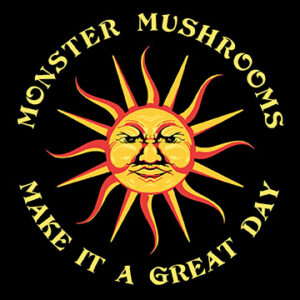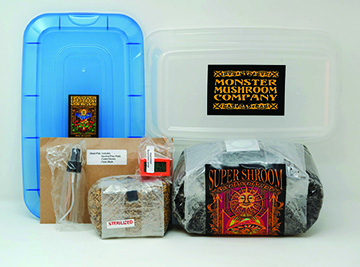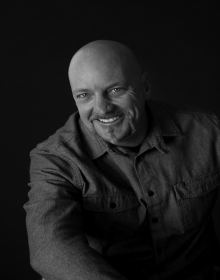“Entrepreneurs and their small enterprises are responsible for almost all the economic growth in the United States.”
- Ronald Reagan
At first glance, “magic” mushrooms and marijuana seem to be kindred commodities. Both have deeply stigmatized perceptions which are softening due to the myriad benefits of their consumption.
Yet, when examined through an economic lens, these elements are less like siblings and more like distant cousins.
The “green wave” was one of the most significant economic and social events in Colorado history. According to the Colorado Department of Revenue, state-licensed sales of marijuana have exceeded $13.4 billion since 2014 — resulting in $2.3 billion in tax revenue.
Not So Fast

Decriminalization: Local mushroom entrepreneurs contend that decriminalization of psilocybin will not lead to another “green wave.”
Yet, marijuana’s fungal counterpart — mushrooms containing psilocybin — are having a much more subtle impact. In November 2022, Colorado voters approved Proposition 122, which decriminalizes the possession and consumption of psilocybin while making it legal to grow over 50 species of mushrooms within the Psilocybe genus.
This piece of legislation sets a legal precedent, making Colorado the only state in the union aside from Oregon to decriminalize at this level. This does not necessarily mean big business is lining up to throw capital investment dollars at mushroom-based startups. Rather, according to some, this burgeoning marketplace will be relegated to scrappy, niche-savvy entrepreneurs who have already been hard at work building an economic framework to support the needs of psilocybin consumers.
Organic Roots
Monster Mushroom Company is one such enterprise, headed by a Denver — based entrepreneur, who introduces himself simply as David. The company manufactures and markets grow kits designed for those who aim to cultivate mushrooms for private consumption. “I started growing mushrooms about 15 years ago as a personal hobby,” he begins. “I got pretty good at it but didn’t do anything with it except to occasionally grow for myself and friends.”
David talks about his personal journey of growth and healing through psilocybin mushrooms. “I was able to solve a lot of personal issues through microdosing. I was able to get off SSRIs (antidepressants) and other medications. Then, in May of 2019, they decriminalized mushrooms in Denver, and I thought to myself, ‘There’s got to be a business opportunity here.’”
To clarify, the May 2019 passing of Initiative 301 deemed the prosecution of psilocybin “the lowest legal priority” according to Decriminalize Denver — the political action group who introduced the measure.
Opportunity Knocks
“Since I already knew how to do it, I started making the grow kits,” David continues. “I went to a grow store called Cultivate, and said, ‘I have these grow kits I’ve been making and I would love to get them on your shelves’ and they gave me a shot. Basically, no one else was really interested at the time, but they saw the possibilities and they started selling our kits. It’s been a long stair-step,” he explains.
“I got into one store, then into five stores, and now I’m in about 120 stores nationwide,” He continues. “It started in my basement and garage, and two years ago we moved to a 3,300 square-foot, climate-controlled warehouse facility in Wheat Ridge. That was not easy because no one wanted to rent to a startup company, especially not in a taboo industry like the mushroom industry.”
Its Own Monster

Grow Kits: Monster Mushrooms Grow Kits are affordable and usable by just about anyone. Photo: Monster Mushrooms
While Monster Mushroom Company’s operation doesn’t parallel the massive labor teams necessitated by the large-scale cultivation of marijuana, the small but mighty enterprise does have its own distinct type of economic impact. “We’ve created over nine jobs,” David begins, “My business partner is a single mom working hard to support herself and her kids. She is also a practicing Mycologist, which is the study of mushrooms,” he explains. “We are cash flow positive, and we are paying all of our bills, but it has been an uphill slog without a doubt.”
“There are all kinds of people who think of this as the new cannabis, which it is not,” David attests. “I don’t see it (psilocybin) ever becoming legal for recreational purposes, at all, and I’m happy about that. It’s a powerful drug. I spend at least 25% of my day on the phone answering questions from people who say, ‘Hey, you guys sell mushrooms?’ and my answer is always, ‘No, we do not grow or sell mushrooms, we merely supply the materials so that you can grow your own.’”
Beware The Uninformed
“Then, they’ll ask, ‘Where can I buy them?’ and I’ll say, ‘It is legal to grow, possess, and consume mushrooms in Colorado but it is not legal to buy or sell them.’ I doubt you’ll ever, in our lifetime, be able to walk into a dispensary and buy a half-ounce of mushrooms,” David says. “There’s just too much risk. If we just open this up to recreational use and there’s tours coming through here, people are going to get more messed up than they know what to do with, and it’s not going to be a good situation.”
“I firmly believe in this medicine for therapeutic use,” David says. “But the people who were against Proposition 122 thought the same thing that happened with cannabis was going to happen with mushrooms. They thought the guys in suits would come in and turn this into a big corporate money-making machine. I certainly hope that does not happen. Allowing people to grow their own plant medicine is a wonderful thing. But I don’t see this becoming a full-on Amsterdam where you can go into a place and buy a sack of mushrooms.”
“Therapeutic use is great and I’m a proponent of microdosing, but I place a strong caution on use,” David says. “People can smoke cannabis four or five times a day or more, you’re definitely not doing that with mushrooms. That’s one of the reasons why I don’t think it will be the new cannabis. People don’t consume mushrooms four or five times a day — it just doesn’t happen.”
Far Cheaper Than Weed
From a practical standpoint, David points out that anyone interested in growing their own mushrooms can do so with a low investment. “Less than 100 dollars will get you everything you need,” he explains.
As a former cannabis grower, David is quick to point out the drastic differences in what it costs to grow fungus versus weed. “It costs a lot of money to grow cannabis,” he begins, “Equipment, lights, nutrients, you name it. The electricity alone is astronomical. But you can grow a batch of mushrooms in your closet for almost nothing — just 100 dollars to get you going and nothing else — no lights, no nutrients, they will grow in a small environment, and you don’t need to dedicate a whole room of your own house.”
Future Growth
Not only has Monster Mushroom Company created quite a few jobs, they are supplementing a local cannabis industry that has fallen on tough times. “We have a couple local retailers who have indicated that they wouldn’t be open right now if it weren’t for the mushroom supplies they were selling.”
“We’ve got a couple chain stores, but 90 percent of our business is mom and pop retail chain stores,” David says. He cites local sole proprietorships such as Mile Hydro in Lakewood and Aurora Hydroponic who claim to be selling more mushroom growing supplies than anything else.
“We also work with bigger chains such as Cultivate and Way to Grow. We are everywhere that has decriminalized mushrooms such as Washington, D.C.; Santa Cruz, CA; Oakland, CA; Detroit, MI; Ann Arbor, MI; and a couple places in Massachusetts,” he says.
Unlike marijuana’s “green wave” of big business, the mushroom boom is destined for a different path. The benefits of this grassroots economic movement will be realized incrementally and enjoyed by mom-and-pop pioneers like Monster Mushroom Company.

